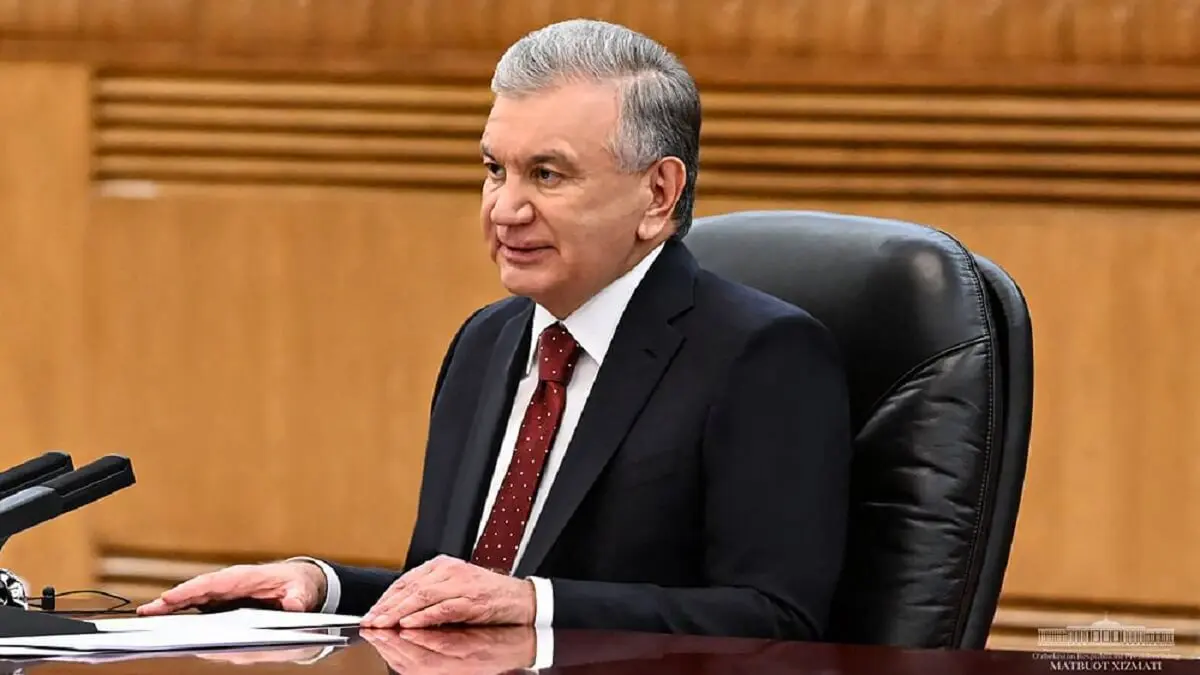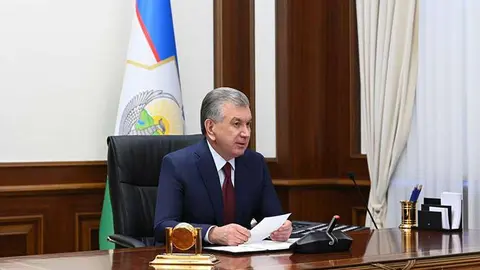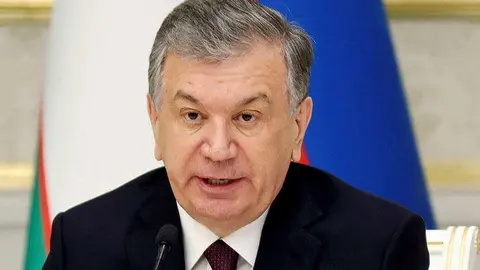Parliamentary elections in Uzbekistan: support for the president's reforms and the 2030 country strategy

On 27 October last, as a result of a process of implementation of the reforms agreed in the constitutional referendum of 30 April 2023 (which was supported by 90.21% of voters for the new Constitution), new parliamentary elections were held in Uzbekistan to elect new representatives to the Legislative Chamber of the Supreme Assembly.
The Supreme Assembly or Oliy Majlis has a system of imperfect or asymmetrical bicameralism in which the Senate (with 100 senators) is the Upper House and the Legislative Chamber (with 150 deputies) is the Lower House.
In these votes to the Legislative Chamber of the Oliy Majlis the number of voters was 19,696,344 in the country's electoral roll of which 9,120,810 are men, 10,683,534 are women. Of these 19,696,344, 5,943,345 were under 30 years of age.
In this electoral process, five political parties of different ideologies participated and obtained 40,000 signatures, which is the necessary requirement to present a candidacy. 40,000 signatures, a necessary requirement to present their candidates, these are: the O'ZliDep Party or Liberal Democratic Party, centre-right, which advocates freedom and economic independence, created in 2003; the right-wing Milliy Tiklnish Democratic Party (National Revival, founded in 1995), which defends national unity, the interests of the nation and its culture; the centre-left Ecological Party of Uzbekistan O'EP, created in 2019, which advocates a transition to a green economy and the recovery of the Aral Sea in the face of its alarming risk of disappearance; the centre-left, social democratic Social Democratic Party (ADOLAT, Justice) of 1995, which promotes equality; and the left-wing People's Democratic Party, PDPU, whose origins date back to 1991.
Article 74 of the Constitution of the Republic of Uzbekistan states their function: ‘Political parties express the political will of various sections and groups of society, and through their democratically elected representatives they shall participate in the formation of state authority’.
As a result, social and democratic support was given to the implementation of President Shavkat Mirziyoyev's proposals: the Action Strategy for 2017-2021 (whose implementation was interrupted by the Covid-19 pandemic), the Development Strategy for 2022-2026 and, above all, the Uzbekistan Strategy 2030. The latter is very ambitious, aiming to achieve 100 goals within 5 priority areas:
- The creation of decent conditions for the realisation of each person's potential.
- Ensuring the well-being of the population through sustainable economic development.
- Conservation of water resources and environmental protection.
- Strengthening the rule of law and an organisation of public administration geared to the service of society.
- Consistent continuation of a policy based on the principle of ‘a secure and peace-loving state’.
These elections were held in accordance with the Electoral Code of Uzbekistan of 25 June 2019 and its subsequent amendment and improvement by the Constitutional Law on ‘Amendments and additions to some legislative acts of the Republic of Uzbekistan’ of 18 December 2023, which creates a mixed (majority and proportional) electoral system, as well as the establishment of a centralised system of electoral bodies, an optimisation of the electoral commission system, an improvement of the activities of the Central Electoral Commission and an increase in the number of women nominated as candidates by political parties from 30% to 40% of the total number of candidates for deputies.
In addition, at least 2 out of 5 candidates on the party list had to be women. Among other improvements, in addition to clearly defining the roles of the Central Election Commission and the regional, district, municipal and polling station election commissions, as well as the introduction of a digital system in the election process through the ‘E-Saylov’ platform, which has contributed to better organisation and efficiency. Electoral legislation concerning elections is contained in the Uzbek Constitution, the Uzbek Electoral Code and Uzbek state laws, such as the Law on Political Parties and the Law on Financing of Political Parties.
According to the Electoral Code, voting for the Legislative Chamber was carried out by implementing a mixed (majority and proportional) electoral system. Thus, the electoral constituencies were divided into a majority system which resulted in the election of a single candidate (the one who gets the most votes, similar to the English system) as a deputy for that constituency; and, on the other hand, a single national constituency system based on national lists of the political parties which were distributed proportionally (a system similar to our system in Spain for the elections to the European Parliament). Of the 150 deputies in the Legislative Chamber, 75 deputies were elected by direct majority, where a single candidate is elected per constituency; the other 75 deputies were elected on a proportional basis.
According to the Electoral Commission and my own experience as an international observer in the city and region of Bukhara, as far as I was able to visit and see, the elections went smoothly and without any significant incidents. As of 5 p.m., 71.52% of the electorate had already voted, i.e. more than 14.2 million voters. Of these, 44.7% were women; the average age of candidates is 47.2 years; 99.3% with higher education; 11 candidates with disabilities.
It is worth highlighting the efforts to facilitate voting by persons with disabilities, the elaboration of inclusive lists where 40 % of the seats in parliament have been filled by women. Better practices and technical standards have been incorporated than in previous elections. It has also proceeded to introduce the new constitutional reforms that have implications for the electoral system. All these aspects have been highlighted in the reports and declarations of both the OSCE and the European Union respectively, where recommendations have been made to continue advancing in the path of improvements that have been produced in the country's new electoral system.
With regard to the results, the ruling Liberal Democratic Party won 64 of the 150 deputies in the Legislative Chamber, adding the deputies elected by the proportional system of party lists and the majority system of election in the electoral districts. The National Revival Democratic Party ‘Milliy tiklanish’ won 29 seats, the Adolat Social Democratic Party 21 representatives, the People's Democratic Party 20 deputies, and the Ecological Party 16 seats. 74.72% of the electorate turned out to vote, both to vote for the legislative chamber and to elect regional and municipal authorities.
These figures show that Shavkat Mirziyóyev, president of Uzbekistan, is the driving force behind numerous economic and legal reforms (both institutional and constitutional) that are leading Uzbekistan, the most populous country in the region with almost 40 million inhabitants, to become a regional leader in Central Asia as a pole of attraction for investment, It is also a nation that contributes to regional cooperation and integration efforts with its neighbouring countries (Kazakhstan, Kyrgyzstan, Tajikistan and Turkmenistan), with a very prominent role in achieving pragmatic peace and stability in Afghanistan.
It is also an endorsement of its multivectoral foreign policy at a convulsive geopolitical moment that undoubtedly influences the country as it finds itself at a crossroads where there are countries competing for regional influence and which are also working to create alliances such as Russia, China and Iran against the European Union and the United States, which also want to be present, defend and develop their interests in this part of the world. An area of the world where other powers such as Turkey, India, Japan and South Korea also want to be present.
The voting on 27 October also included elections at the municipal level, with the election of all the Councils (Kengashes) of People's Deputies of the regions and the city of Tashkent, as well as those of the districts and cities, and the deputies of the regional Assembly or Jokargy Kenes of the Republic of Karakalpakistan. It is worth noting how the role of the mayors or hokim has been complemented by a kind of power-sharing between the executive and the legislative level embodied in the local councils, democratising local administration.
From 7 to 12 November, voting will take place in the Senate of the Supreme Assembly, the upper house of the Oliy Majlis to elect its 65 members after the last constitutional reform passed in April 2023, 56 elected by the twelve regions, the Republic of Karakalpakistan and the capital, Tashkent (4 senators for each administrative entity by indirect vote of the regional, district and municipal entities form an electoral college), and another 9 appointed (previously there were 16) by the president of Uzbekistan from among people of recognised prestige in different fields or who have performed important services to the state.
Carlos Uriarte Sánchez, Professor of Constitutional Law and election observer in the parliamentary elections of 27 October 2024 and previously in the presidential elections of Kazakhstan on 9 June 2019 and the parliamentary elections of Uzbekistan on 22 December 2019, as well as in the Uzbek presidential elections of 24 October 2021 and 9 July 2023.



